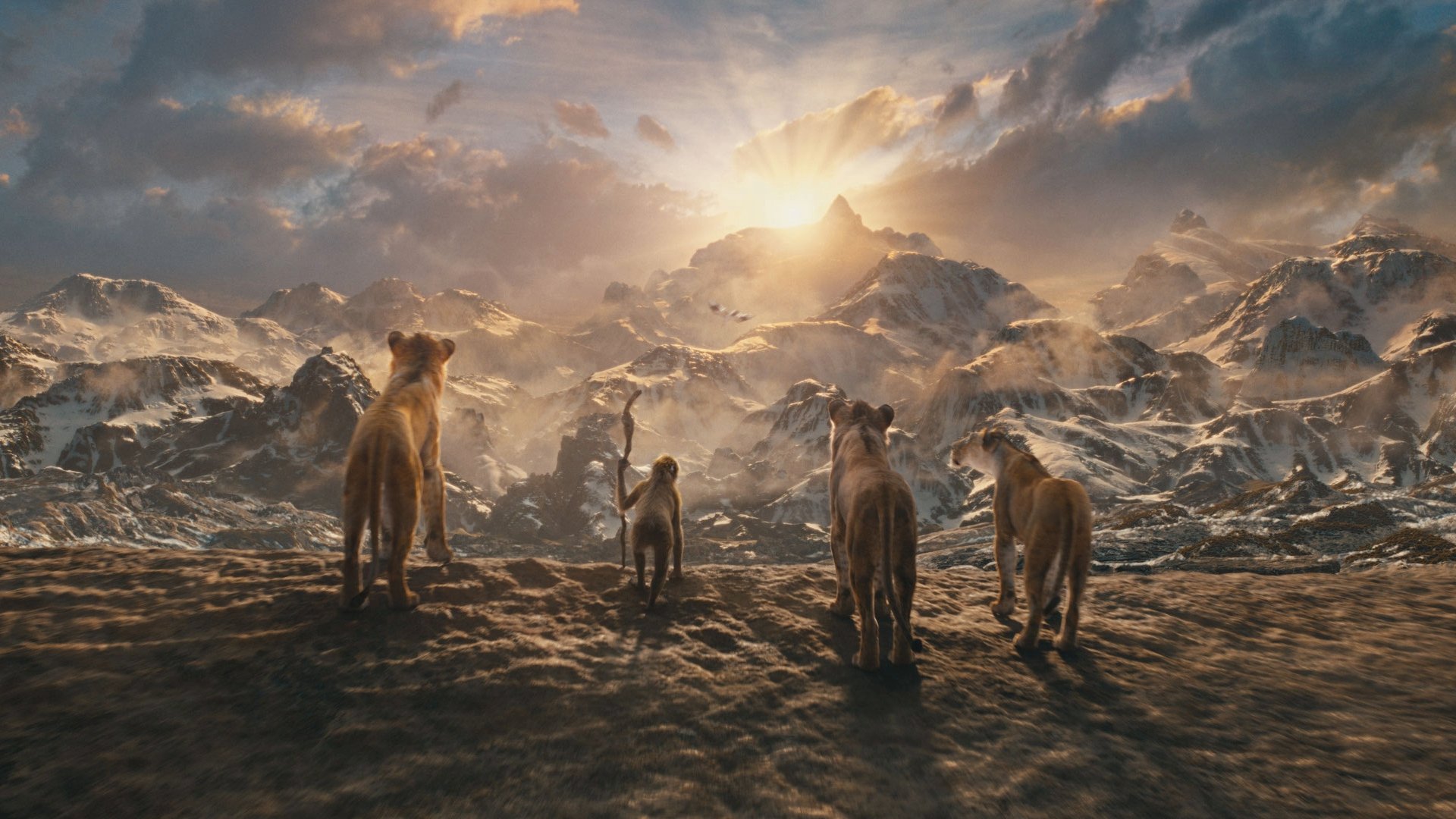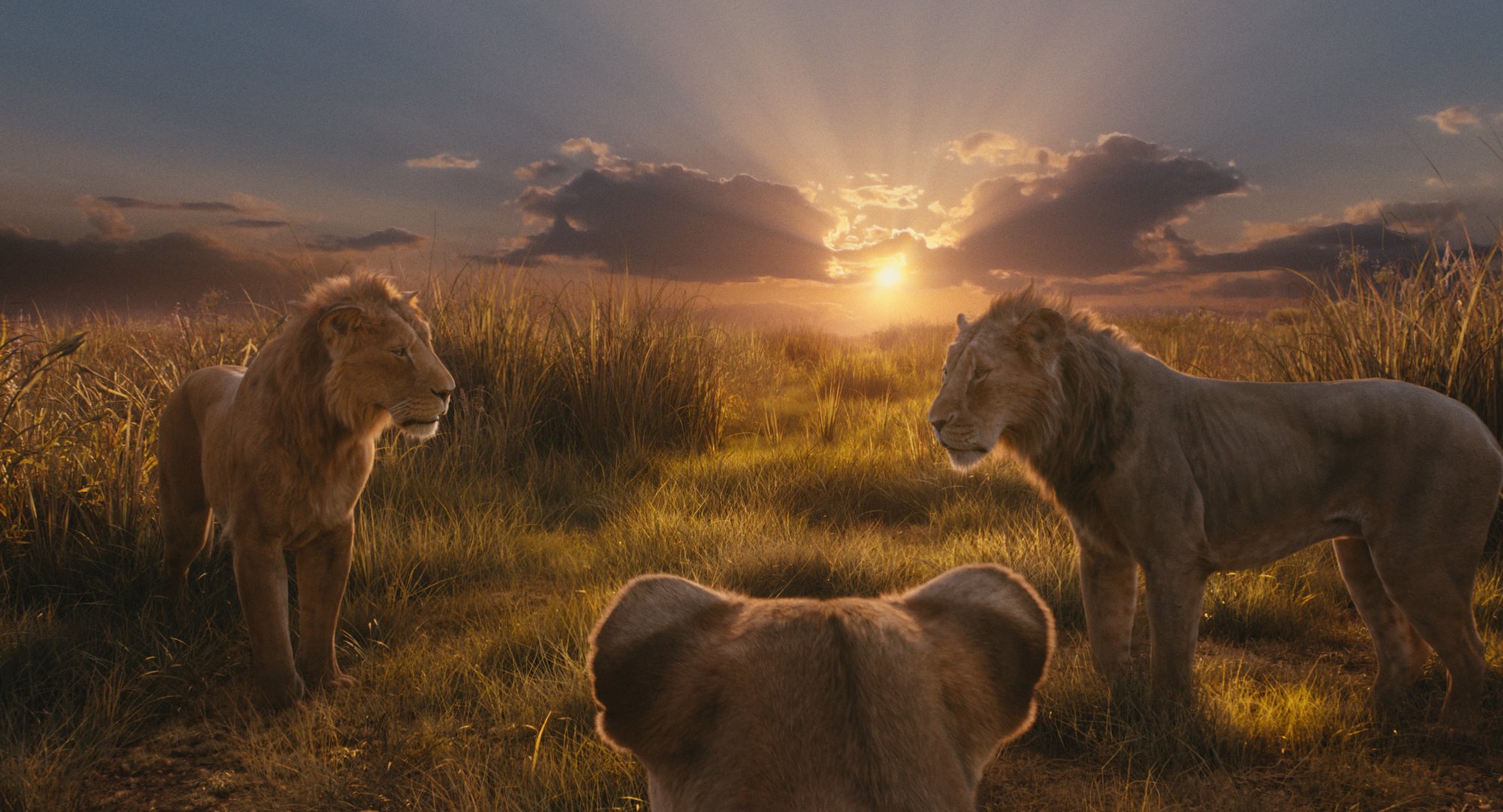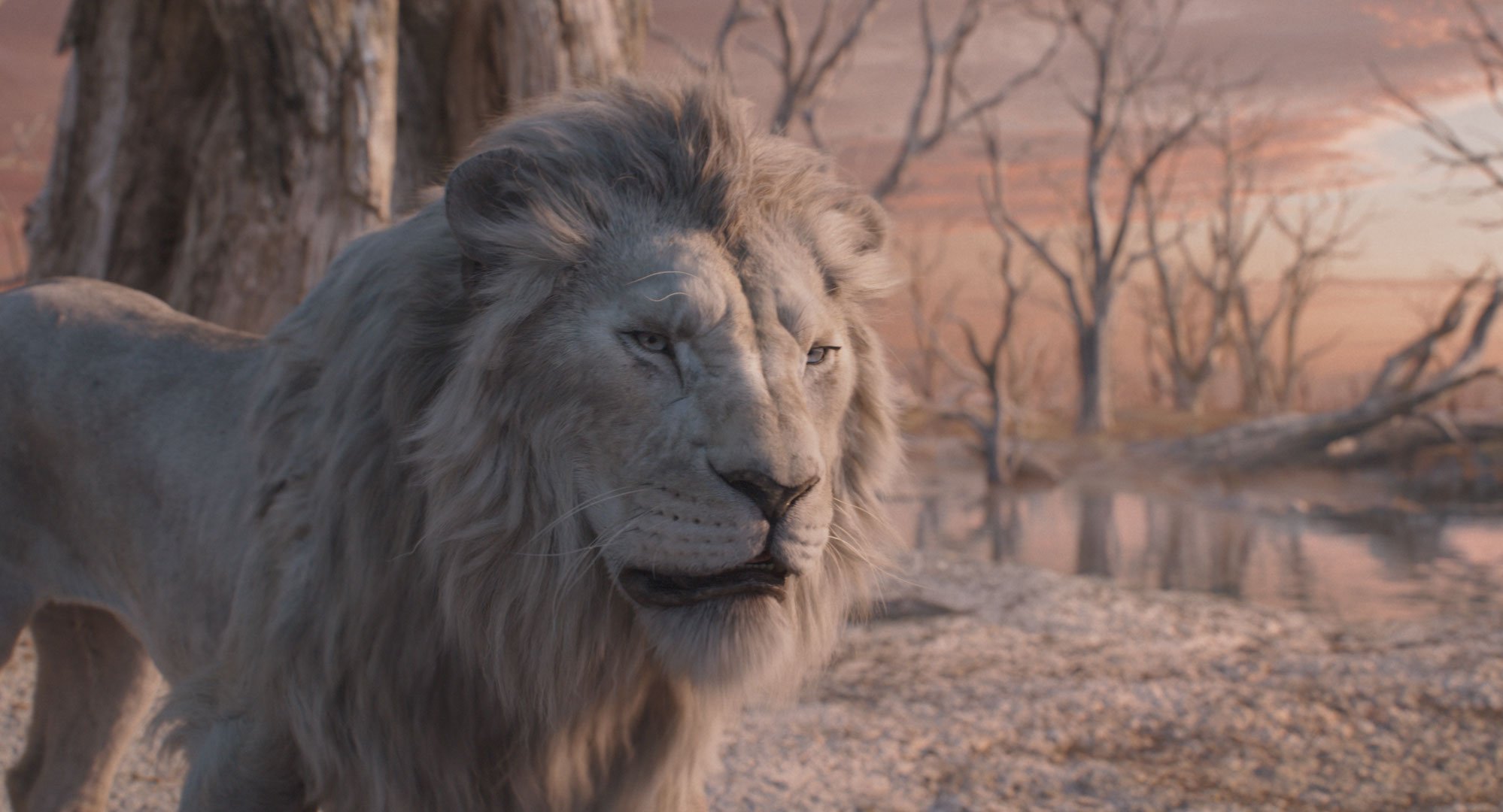'Mufasa: The Lion King' Review: Photorealistic Lion King Prequel Contains a Minor Roar
The Lion King retelling from 2019 was one of my “thirteen reasons why” that year, right next to watching Cats. But unlike Cats, I didn't have a burning romance with the exit sign as I witnessed Disney continue their streak of robbing everyone's pockets blind with another soulless remake of a perfect animated movie. It was personal because The Lion King (1994) is one of my all-time favorite animated movies ever. And because Disney cleaned out everyone's pockets, we got more live-action Lion King movies. To add insult to injury, they hired one of my favorite working filmmakers, Barry Jenkins, to helm their first line of installments. What did I do to the mouse for him to forsake me!?
Instead of adapting The Lion King II: Simba's Pride, they decided to do something different: an origin story about Simba's dad, Mufasa, how he became the leader of the Pride Lands, and how his relationship with his brother Scar soured. Well, would you look at that, a fresh Lion King story. Despite it being better than the 2019 slop, it’s still a middling prequel with such little of a roar.
Image copyright (©) Courtesy of Disney
PG: Action/violence, peril and some thematic elements.
Runtime: 1 Hr and 58 Minutes
Production Companies: Walt Disney Pictures
Distributor: Walt Disney Pictures
Director: Barry Jenkins
Writer: Jeff Nathanson
Cast: Aaron Pierre, Kelvin Harrison Jr., Seth Rogen, Billy Eichner, Tiffany Boone, Donald Glover, Mads Mikkelsen, Thandiwe Newton, Lennie James, Anika Noni Rose, Blue Ivy Carter, Beyoncé Knowles-Carter
Release Date: December 30, 2024
Young lion cub Kiara (Blue Ivy Carter) is being cared for by Timon (Billy Eichner), Pumbaa (Seth Rogen), and Rafiki (John Kani) while her parents – Simba (Donald Glover) and Nala (Beyoncé) – are away handling family business. Rafiki recounts to Kiara the tale of her late grandfather Mufasa and his transformation into the titular Lion King, Princess Bride-style.
Mufasa's origins begin as a young cub living with his family (Keith David and Anika Noni Rose, which is weird for Princess and the Frog fans). When a natural disaster strikes, Mufasa winds up miles away from home. He's found by Taka (Theo Somolu) and is adopted by his mother Eshe (Thandiwe Newton), but to the dismay of King Obasi (Lennie James).
Adult Taka (Kelvin Harrison Jr.) and Mufasa’s (Aaron Pierre) world is threatened after a nearby pride of white lions, led by Kiros (Mads Mikkelsen), begins eliminating all other lion groups for power, including Taka's. To safeguard their lineage, Eshe sends her sons on a journey across Africa to discover a promised land called Milele. Along their quest, they encounter and travel with other misfits, Sarabi (Tiffany Boone), Zazu (Preston Nyman), and a young Rafiki (Kagiso Lediga). They must survive while being hunted by Kiros and his crew.
Barry Jenkins Said, "Let These Animals Emote, Damn It!"
Every director has that project in their filmography that’s an obvious “getting the bag” so it can fund their next project, which is unlikely to be undertaken by a studio. That said, I was often impressed by how hard Jenkins tried to improve on the shortcomings of the 2019 The Lion King remake, starting with the animals finally being expressive. He successfully imitates photorealism while pushing these CG animals to convey emotion without hitting the uncanny valley territory. It's similar to Jon Favreau's The Jungle Book (2016) when he cared about maintaining that balance. Although it’s not comparable to the efforts of the 2D original, Jenkins incorporated stylish visual cues that enhance some of the original musical numbers and a sweeping direction that boasts the stunning work of the VFX team. But after a while, the flair wears off since the realistic African landscape gives Jenkins so little to work with in terms of taking bold artistic liberties beyond the change of environments. At a certain point, the numerous tracking shots during musical numbers and action sequences make Mufasa feel like a VR experience – furthered by the fact that my press screening was in IMAX 3D. Despite the entertainment value, not a minute of Mufasa goes by where I don't wonder how significantly better it would be if it were 2D-animated… if Disney gave a shit about that again.
The medium of animation would've given Jenkins more leeway to make Mufasa’s story as cinematic and visually investing as it is thematically epic. I sincerely hope that talented musical theater enthusiasts and animators produce animatic renditions of the songs on YouTube. Even the shoddiest storyboard will have more artistry than any official frame from the film. Speaking of music…
Finally, Some Good Original Tunes
Listen, 2024 has seen a drought in good original songs within movie musicals. Every song in Emilia Perez is generic and forgettable. Moana 2 was even worse, lacking any noteworthy tracks and resembling drab versions of Lin-Manuel Miranda's fiery tunes from the predecessor. Miranda proves again that he’s one of the best songwriters in the game because most of these new songs are great. Songs such as "I Always Wanted a Brother" and "Tell Me It's You" contribute significantly to the story's progression, strengthening Mufasa's relationships with the characters in his orbit while having me bobbing my head in the theater. It pains me to say that because I love the songs Elton John and Tim Rice provided for that film, but these new tracks rival the originals. *Runs out of the room*
Not all songs are bangers, like Mads Mikkelsen's "Bye Bye," but compared to recent trash from the Mouse House like "This Is The Thanks I Get?!" from Wish, it's refreshing to have a legitimate villain song that's even more terrifying with context.
Mufasa Is That King, But He Deserved A Better Story
Screenwriter Jeff Nathanson presents some interesting concepts within Mufasa, sometimes concentrating on the series' world-building, which went unexplored in previous installments. The writing's finest aspect is within Mufasa himself. His known aristocracy through his selfless actions and character is finely depicted, and his journey to becoming Mufasa THE Lion King is well-earned. Aaron Pierre's stunning voice work also gives his character a grounded feel. I appreciate how the film depicts that his traits are attributed to his upbringing by Eshe, the lionesses that Obasi commanded him to be with, and the resourcefulness that made him different from the other lions.
Despite being a nearly two-hour film, Mufasa moves as fast as a cat with zoomies. Nathanson is too focused on illustrating the origins of the iconography within The Lion King, for things we don't care about. What led to the formation of Pride Rock? How did Rafiki get his stick? The intriguing elements, such as how Taka and Mufasa's relationship soured, are reduced to unconvincing tropes. Oh yeah, Taka beefed with Mufasa because he wanted to get with Sarabi, without the film ever really establishing he had a chance, and getting petty when she chooses Mufasa over him. It's weak and lazy compared to other CG-animated prequels, like Transformers One, which employed thought-provoking themes and opposing ideologies to drive the rift between its brothers-turned-foes, Optimus Prime and Megatron. Even if Mufasa were 2D-animated, it still would've suffered from poor story quality.
Final Thoughts
The return to the photorealistic Pride Rock with Barry Jenkins' Mufasa: The Lion King is a significant improvement over the dreadful 2019 Lion King remake. However, it’s a subpar prequel flick with rushed, generic, and forgettable storytelling that’s not a worthy entry to the Lion King series.
Rating: 2.5/5





